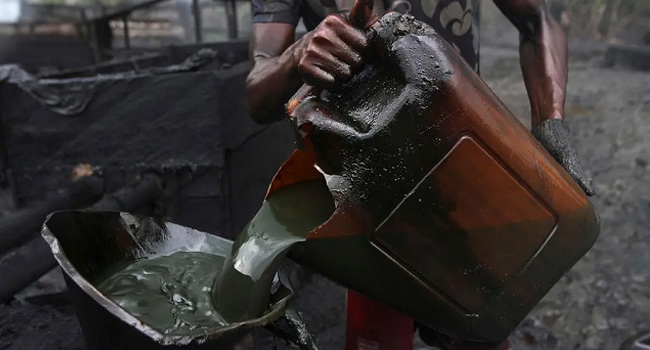Oil prices surged for a second consecutive day on Wednesday, gaining more than 1%, as investors weighed the impact of sanctions-related supply risks and renewed hopes for progress in U.S.-China trade negotiations.
According to a Reuters report, the market also responded positively to news that the U.S. government plans to purchase oil for its Strategic Petroleum Reserve, signaling potential increased demand.
As of 5:00 a.m. WAT, Brent crude futures rose by 94 cents, or 1.5%, to $62.26 per barrel, while U.S. West Texas Intermediate (WTI) gained 92 cents, or 1.6%, to $58.16 per barrel.
Oil prices have rebounded since hitting a five-month low earlier this week, as concerns about slowing demand from trade tensions are being offset by tightening supply signals.
Fresh supply worries emerged overnight after reports that a planned summit between U.S. President Donald Trump and Russian President Vladimir Putin was postponed. Western sanctions and pressure on Asian buyers of Russian oil have also raised fears of potential market disruption.
Adding to the geopolitical tensions, investors kept a close eye on developments between the U.S. and Venezuela, another key oil-producing nation. In recent months, the U.S. has targeted several vessels in the Caribbean suspected of transporting narcotics from Venezuela, part of its wider campaign against what it calls a “narcoterrorist” threat.
Meanwhile, market sentiment was lifted by optimism surrounding upcoming U.S.-China trade talks in Malaysia, where officials from both sides are expected to meet this week. President Trump expressed confidence in reaching a fair trade agreement with Chinese President Xi Jinping, with a meeting reportedly planned for next week in South Korea.
On the supply front, U.S. crude, gasoline, and distillate inventories all declined last week, according to data from the American Petroleum Institute (API). The U.S. Department of Energy also announced plans to purchase 1 million barrels of crude oil for delivery to the Strategic Petroleum Reserve (SPR), taking advantage of relatively low prices to rebuild the country’s emergency stockpile.
With global trade sentiment improving and geopolitical tensions simmering, analysts say crude prices could see continued support in the near term—though volatility remains a key risk for energy markets.

News